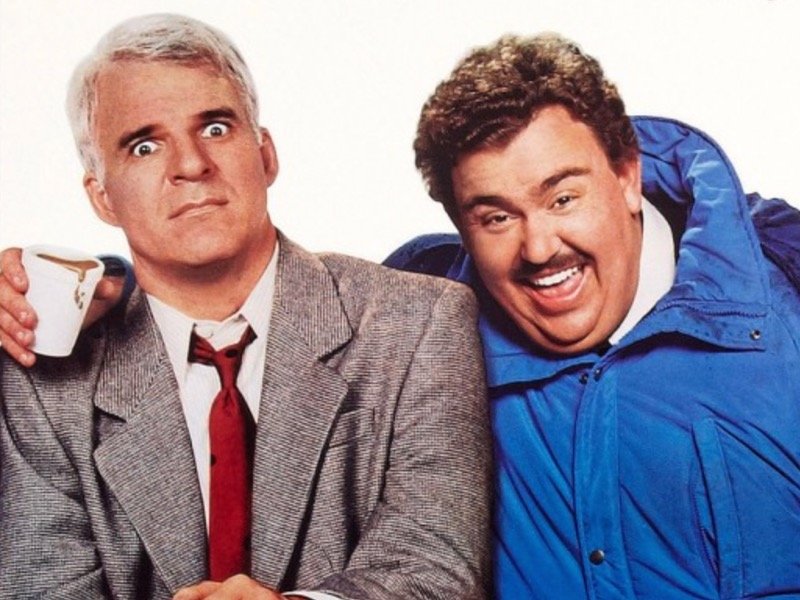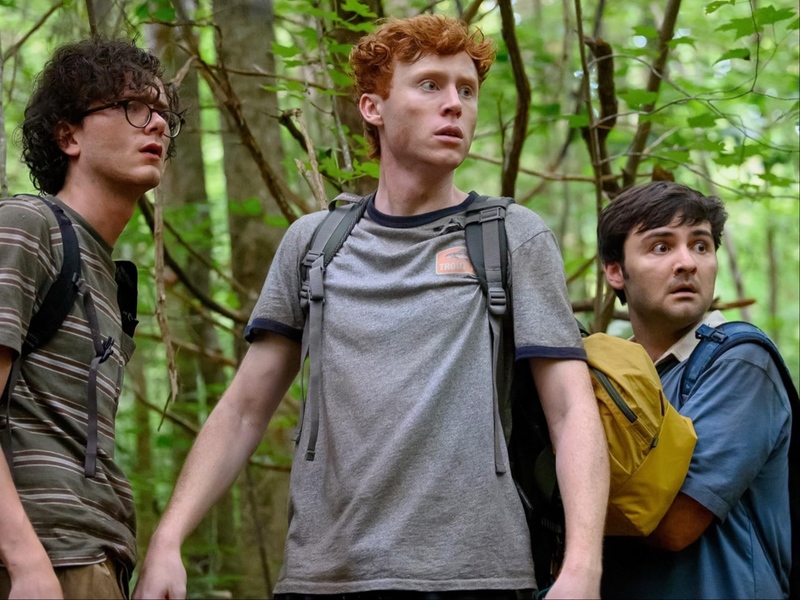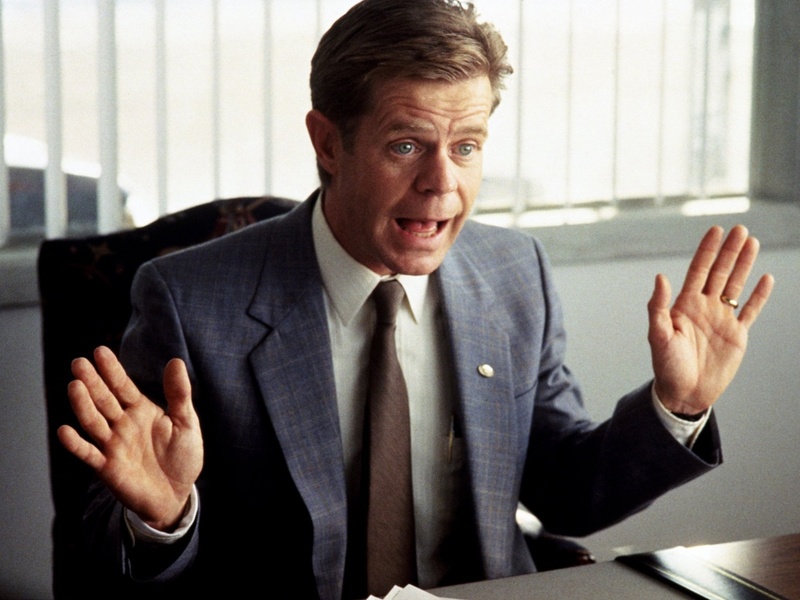In the locally-made dramedy "Small Town Wisconsin," our lead – a well-meaning-but-boozy deadbeat dad, Wayne, played by David Sullivan of "Argo" and HBO's "Sharp Objects" – has the perfect dream destination for a critical weekend with his son: Milwaukee, for a Brewers game.
As it turns out, the film itself has a similar dream destination in the real world – just trade out American Family Field for the Oriental Theatre.
It wouldn't be a trip to Brew City, however, without some potholes – and indeed, both the film's on-screen and off-screen journeys hit plenty. In the latter's case, the road forced Milwaukee-born director Niels Mueller, who made quite a splash with his star-studded 2004 feature debut "The Assassination of Richard Nixon," to navigate detours through the predictably tricky world of independent film financing and the significantly less predictable world of the COVID-19 pandemic.
But, while it was an unusual path involving virtual festival tours – including screenings during the 2020 Milwaukee Film Festival and the organization's Sofa Cinema digital platform – it did finally land Mueller and "Small Town Wisconsin" at their desired destination: back home on the big screen.
It's a quest, and a film, worth celebrating. And celebrate they will with a glossy theatrical premiere on Friday night at the Oriental Theatre, featuring Mueller, his cast, Oscar-winning executive producer Alexander Payne and many more. But before the high-profile premiere rolls film at 7:30 p.m., I chatted with Mueller (no relation to yours truly) about "Small Town Wisconsin," its big homecoming, getting Wisconsin right on screen and what's next.
OnMilwaukee: What’s it like to finally be able to debut this film in a theater – and not just any theater but one close to home like the Oriental?
Niels Mueller: It is mind-blowing. It’s a dream come true. I premiered my first film, “The Assassination of Richard Nixon,” at Cannes and then did its North American premiere at Toronto – these big, world-famous festivals. I can’t say that I was any more excited for that than I am for this – and honestly, I’m probably a little bit more excited about screening at the Oriental. It’s where I fell in love with film. I have such clear memories of watching James Dean for the first time in “East of Eden” because the Oriental, as I was growing up, would play classic films so often. And now I get to put my film up there.
During this tech check today, I was sitting there listening to my own film and looking at my own film, and honestly it was kind of an emotional experience. It was really just a joyous feeling – like wow, I get to put my own work up at really one of the great theaters in the country, the one where I fell in love with film.
What was the path to now for “Small Town Wisconsin”? How did we get from the virtual 2020 Milwaukee Film Festival to theatrical debut 2022?
We were literally mixing the sound of the film when the pandemic hits and everything’s shutting down. So many of the market festivals just didn’t happen at all; but thank god that some of the great national festivals across the country, like Milwaukee Film, found a way to go digital because otherwise we would’ve just been sitting on the film. And we really wanted to get the film out and start getting our heads above water – because we are a small indie film.
So the “Small Town Wisconsin” team of producers – me, Josh Rosenberg, Scott Foley – said we could either sit on the film or let’s hit the festival circuit hard. And since our film is called “Small Town Wisconsin,” let’s really also pay attention to festivals that are sometimes neglected and overlooked in the Heartland. Let’s send to Iowa Independent. Let’s send to South Dakota. Let’s go to Red Rock in Utah and Santa Fe and Omaha. So we did an extended festival run that – all modesty aside – we had tremendous success with. We were in just over 40 festivals and we won Best Feature Film at 20 of them, either jury prize or audience prize.
Did you have a distributor back in 2020, or was that picked up along this path?
No, we did not have a distributor back then, so that was part of our thought process. Along with getting the film in front of an audience, we hoped that the film would resonate with people and get the interest of a distributor. So as we started to emerge from the pandemic, we had interest from a number of distributors and some really good indie distributors. We went with Quiver Distribution – it’s a couple of folks who cut their teeth at Lionsgate. Really, really smart company – and what set them apart for us was talking to them, they got the film. They’re cinephiles that love film and they just happen to be really great at distribution. They totally got the film, and that’s kind of the starting point for me with anything. You want people to be getting behind your film for the right reason. They loved the film, and they had a strategy.
With all this time between then and now, did you tinker with the movie at all over the course of these past few years?
Just about any filmmaker, if you have the chance to do a little tinkering after your first few screenings, you get in there a little bit. It’s largely the same film, but I did some important little tinkering – which means this is a fresh release all over again. But yeah, it was pretty damn close. I was really happy with what we put up at the Milwaukee Film Festival when you first saw it. But it got a little bit of tinkering too, so it’s a whole new experience.
We talked back in 2020 about getting Milwaukee right, about how the city has a high BS meter when it comes to how it’s portrayed on screen. Maybe it’s because we just don’t get portrayed very often on screen, so when we do, we really pay attention to it. But there is that balance of how do you portray small-town Wisconsin without becoming condescending but still getting the quirks of it right. How was it trying to find that balance?
Well, I think the key is that I grew up in Wisconsin. I love Wisconsin. I grew up with people like the ones portrayed in “Small Town Wisconsin.” Even though I grew up in Milwaukee, I worked at my father’s office furniture warehouse where there were guys who drove in from Slinger and smaller-town Wisconsin. Often, as a kid, we would take weekend trips or day trips out to New Holstein or Chilton where my father’s business partner, who’d grown up on a dairy farm, had extended family. I just grew up with these characters who shared this … it’s hard to describe what makes a culture, but Wisconsin has its own culture. The culture here can have big personalities or more reserved personalities, but there’s this kind of shared straight-forwardness to Wisconsinites.
A thing I’ve noticed living on both coasts now is that people on the coasts often enjoy flaunting their wealth and accomplishments. Wisconsin’s more understated, and people here I think – and anytime you try to talk about culture, it’s generalizations – judge the person in front of them rather than status. That all factors into how I saw these characters.
The other thing is that I’m just one person. You often hear people say that directing is 90 percent casting. Well, there is some truth in that. So you cast an actor like Kristen Johnston, who grew up in Wisconsin and knew this character inside and out. So some of the authenticity I achieved – and the most important reviews for me early on were hearing that people found the film authentic – a lot of that was just how I cast the film.
Every actor in this film is either Wisconsin born and raised, or Midwestern born and raised, or in David Sullivan’s case, he had small-town America in his blood and bones because he grew up in small-town east Texas. So David just got Wayne immediately.
So a lot of that authenticity is casting – and then every financier I met with, I told that I must shoot in Wisconsin. It’s not just the locations, because you can’t shoot Georgia or Atlanta for Milwaukee and chase these tax credits. It’s such a shame that so many films are really governed by the dollar as opposed to the right creative choice. But I convinced my financier that the only way to do this film properly was if I shot here, and I said I’ll be the tax credit and call in every favor.
I was pretty certain – and I was right – that the community would get behind the film. Without the Pfister opening their doors and saying yes, without the State Fair saying yes, without the Milwaukee Sheriff’s Department guiding us onto the freeway with 50 Harleys behind our picture car, the film doesn’t happen. Milwaukee made this film happen.
Alexander Payne (“Sideways,” “Nebraska”) is an executive producer on this film; how’d he get involved?
He’s my executive producer and a very good friend from UCLA film school. He actually got me involved! Alexander and his partner, I think they had a deal at Fox Searchlight at the time, and they developed a script. They sent it my way – this is many, many years ago, right when everything was falling apart financially in the whole country, which just kind of killed that mid-layer of independent filmmaking. I’d just done “Assassination of Richard Nixon” and was looking for the next film to do, and this script came my way through Alexander’s company. I’m thrilled that he’s going to come out and join us on Friday at the Oriental and come up for the Q&A.
He’s a very good friend; we started at UCLA film school together. When I premiered “Assassination of Richard Nixon” at Cannes, Alexander last-minute said he’d love to be at the premiere. All the hotel rooms were booked, so he said, “Mind if I get a cot in your room?” And we said yeah, for god’s sake, get your butt over here. So we put a cot in the room – so he was there for that premiere, and I’m thrilled he’s gonna be here for this one.
I know this is a crazy question considering “Small Town Wisconsin” is just about to premiere, but what’s next for you after this rollout?
There are two things immediately on the horizon. I finished a script right before I got cutting on “Small Town Wisconsin” that I would love to make. It’s called “A Letter From Matschek.” It’s a script set in Weimar Germany – not Weimar Berlin – and I kind of describe it as an entertaining meditation on the dangers of nationalism. It’s Weimar, it’s 1923, Germany has its first democracy and you have all kinds of good things on the horizon potentially but you have this pull backwards toward nationalism.
We’ve seen a lot of World War II films, and we need more of them; you read these horrible statistics about a lack of awareness about the Holocaust. But I’m always very interested in how Germany was at this period of promise and hope – people and scientists and artists moving there – and then everything fell apart in such a horrible way for Germany and for the world. So another film that will be very difficult to finance – but so were my first two films.
But also, I’ve been developing a television series that I hope it seems like we’ve got some traction on. I’ve been developing it with Pulitzer Prize winning journalist Jake Halpern, who has this great non-fiction book called “Bad Paper” where it took this seriously deep dive into the debt collection industry all set in his original hometown of Buffalo. You read this book and you’re like you can’t make this stuff up – just really interesting characters. So we’ve developed a series, and television is a long process but we’ve been pitching, and we may – may, may, may – have had success. Nothing’s guaranteed, but it’s such a great world – so knocking wood on that.
Sounds like you’re definitely keeping busy then!
Yeah, and I’m here (in Milwaukee) all the time. Altogether, with the back and forth with my folks here in Milwaukee – and I have a lot of good reasons to be here – I’m in Wisconsin it feels like six months of the year. I’m bi-coastal: West Coast and the west coast of Lake Michigan.
"Small Town Wisconsin" will premiere Friday night at the Oriental Theatre, followed by a week-long exclusive run at the East Side movie theater. For tickets, visit Milwaukee Film's website. After the movie's week-long Oriental Theatre debut, it will hit select Marcus Theatres, as well as digital platforms, beginning June 10.
As much as it is a gigantic cliché to say that one has always had a passion for film, Matt Mueller has always had a passion for film. Whether it was bringing in the latest movie reviews for his first grade show-and-tell or writing film reviews for the St. Norbert College Times as a high school student, Matt is way too obsessed with movies for his own good.
When he's not writing about the latest blockbuster or talking much too glowingly about "Piranha 3D," Matt can probably be found watching literally any sport (minus cricket) or working at - get this - a local movie theater. Or watching a movie. Yeah, he's probably watching a movie.







